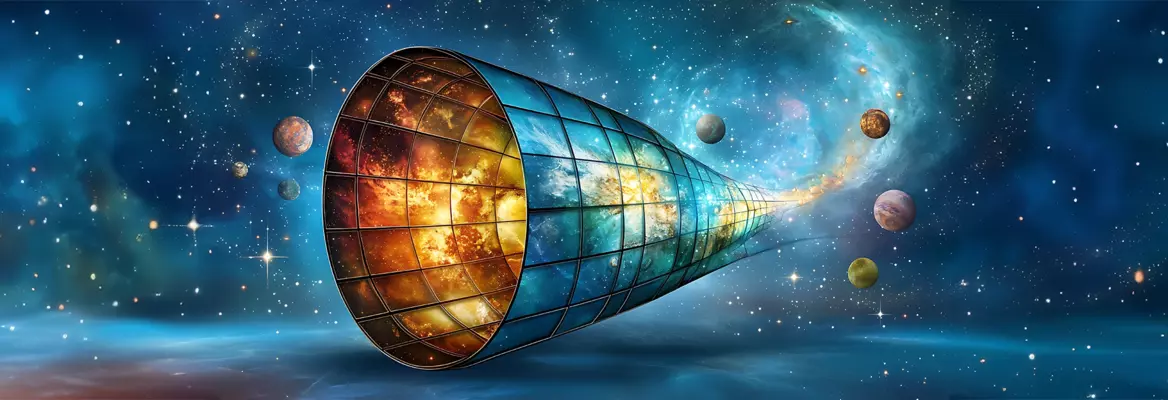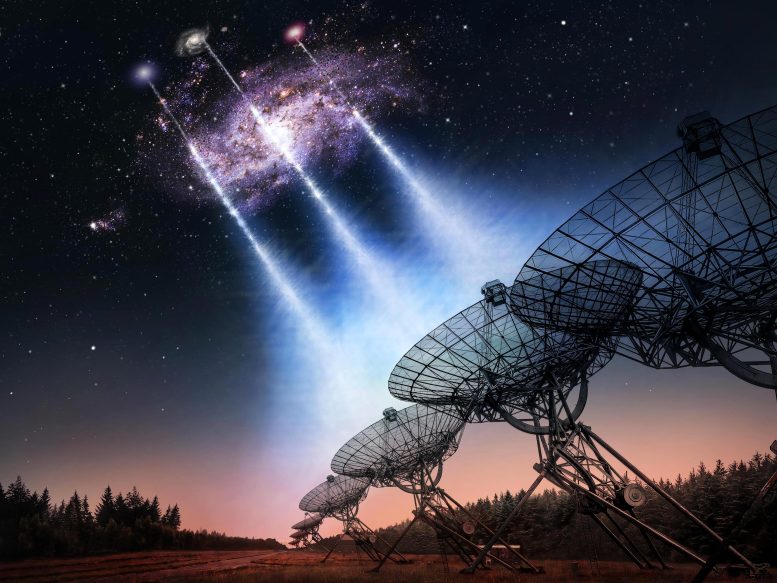The universe is a place of wonder, intrigue, and deep questions that have puzzled humanity for centuries. In this vast and ever-expanding cosmos, scientists and researchers constantly explore, discovering new phenomena that both inspire and perplex us. Some of these mysteries, though, remain unsolved—defying our best attempts to understand them. These are not just puzzles; they are fundamental aspects of the cosmos that could hold the keys to understanding space, time, and even the very nature of reality itself. Here are the Top 5 Most Mysterious Phenomena in the Universe—each one deserving its spot for how deeply they challenge our perceptions of the universe.
1. Black Holes: The Cosmic Enigmas

Imagine standing on the edge of a black hole, a region in space so dense that it warps the very fabric of space and time. Light, the fastest thing in the universe, cannot escape. Nothing can escape. Not even time itself, it seems. The closer you get to a black hole, the more time slows down relative to an observer far away.
Why is this mysterious?
Black holes, while fascinating, have always stirred more questions than answers. They are born from the collapse of massive stars and are defined by a boundary known as the event horizon. This is the "point of no return" where nothing, not even light, can escape the intense gravitational pull. But here’s where it gets strange: Inside a black hole, we have the singularity—a point of infinite density, where the laws of physics as we know them break down. What happens beyond the event horizon is a complete mystery. Are we talking about a tear in space-time, a gateway to another universe, or just an irretrievable end?
The intrigue lies in the fact that black holes are the perfect example of physics at its most extreme, a point where we are forced to reconcile the apparent conflict between quantum mechanics and general relativity. This is why black holes are an undeniable inclusion in this list—their very existence suggests that there’s a fundamental layer of reality we have yet to grasp.
2. Dark Matter: The Invisible Giant

Close your eyes for a moment and think about the vastness of the universe—the countless galaxies, stars, and planets. Now, imagine that a significant portion of that mass is invisible. In fact, about 27% of the universe is made up of something we can't see, touch, or detect directly. This elusive substance is what scientists call dark matter.
Why is this mysterious?
Dark matter doesn’t emit, absorb, or reflect light, making it practically undetectable by traditional means. But we know it exists because of its gravitational effects on visible matter. Galaxies spin in ways that suggest there’s more mass than we can see—dark matter is what's filling in the gap. The question remains: What exactly is dark matter? Is it a completely new type of particle that we’ve never encountered? Could it be something even stranger, something we can’t even comprehend yet?
This sense of the unknown is precisely what makes dark matter so alluring. It’s a major part of the universe's structure, yet its true nature is still a mystery. Until we can unlock what dark matter is, we won’t truly understand the makeup of the universe. And that’s why it makes the list—its very existence holds the key to so much that we still don’t know.
3. Dark Energy: The Force of the Universe’s Expansion

As if dark matter wasn’t enough, there’s another unseen force—dark energy. Imagine the universe expanding at an accelerating rate. The galaxies are moving away from each other faster and faster. This strange behavior is being driven by an unknown force. What is this force? Enter dark energy, a mysterious phenomenon that accounts for about 68% of the universe’s energy content.
Why is this mysterious?
The concept of dark energy was first proposed when astronomers observed that the expansion of the universe was speeding up instead of slowing down. We had always believed that gravity would eventually slow down the expansion, but dark energy is pushing against gravity, causing galaxies to accelerate away from each other. What exactly is this force? Some theorize that it’s a property of space itself, causing space to stretch. Others wonder if it’s a manifestation of some unknown force.
Dark energy is a key player in the ultimate fate of the universe. If we can understand it, we might learn whether the universe will continue expanding forever or collapse in on itself. That’s why dark energy holds such significance—it’s not just mysterious; it could determine the future of everything we know.
4. Cosmic Inflation: The Universe’s Birth Sped Up

In the early moments after the Big Bang, the universe expanded at an unfathomable rate—faster than the speed of light. This period, called cosmic inflation, lasted only a fraction of a second but had profound consequences. In that brief moment, the universe grew exponentially from subatomic scales to billions of times its original size.
Why is this mysterious?
While cosmic inflation explains many observed features of the universe—such as its large-scale uniformity and structure—the exact cause of this rapid expansion remains unknown. What triggered this sudden growth? Why did it happen? Could it have been the result of quantum fluctuations, or did some unknown energy field drive the inflation? Scientists are still grappling with the fundamental cause of this process, and until we fully understand cosmic inflation, many questions about the origin and nature of our universe remain unanswered.
The very idea that the universe could expand at such a rate in such a short time challenges everything we thought we knew about the laws of physics. That uncertainty is why cosmic inflation is one of the top 5 phenomena—it forces us to reconsider everything about the universe's birth.
5. Fast Radio Bursts (FRBs): The Enigmatic Signals from Space

In 2007, astronomers detected a bizarre and extremely powerful burst of radio waves from a distant galaxy. This mysterious signal, lasting only a few milliseconds, was dubbed a Fast Radio Burst (FRB). Since then, more FRBs have been detected, but their origins remain a total enigma.
Why is this mysterious?
FRBs are strange because they release an enormous amount of energy in such a short period—millions of times more powerful than a solar flare. Some scientists speculate that FRBs could be caused by cosmic phenomena like neutron star mergers or even exotic events like the collapse of stars. Others have even suggested that they could be signals from extraterrestrial civilizations. The fact that we don’t know the origin of these signals is what makes them so compelling.
FRBs are an exciting mystery because they challenge everything we thought we knew about the high-energy processes in space. Are these natural cosmic events, or could they be something much more profound? The fact that we’ve only just begun to unravel the secrets of FRBs places them firmly on this list.
Leave a Comment